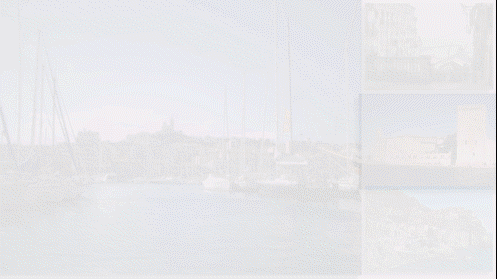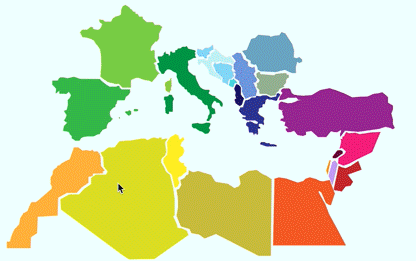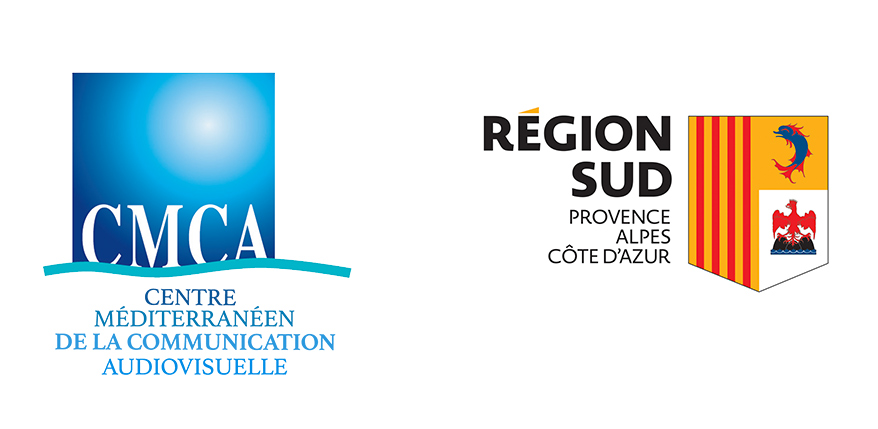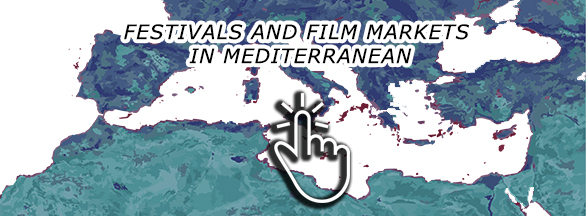PriMed 2017 / Mediterranean Issues
-
19 June 2017
-
19 June 2017
-
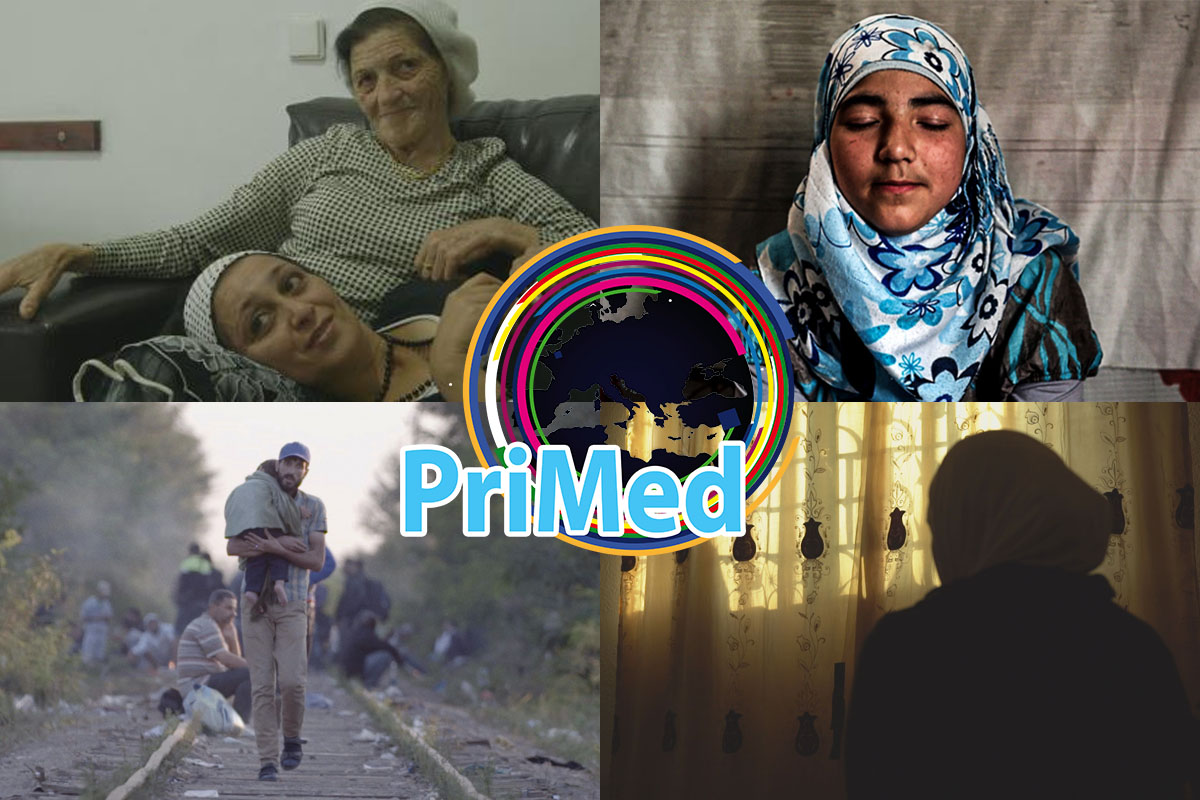
The films chosen in the Mediterranean Issues category for the 21st PriMed are:
– CHILD MOTHER by Yael KIPPER and Ronen ZARETZKY
– IF I CLOSE MY EYES by Francesca MANNOCCHI and Alessio ROMENZI
– NÉ EN SYRIE by Hernán ZIN
– SYRIE, LE CRI ÉTOUFFÉ by Manon LOIZEAU and Annick COJEAN
The 21st PriMed (Prix International du Documentaire et du Reportage Méditerranéen) will take place between November 19th and 25th in Marseille.
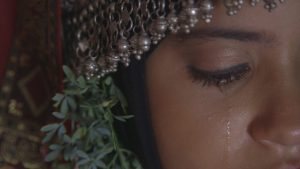 CHILD MOTHER
CHILD MOTHER
90 minutes, 2016
Directors: Yael KIPPER and Ronen ZARETZKY (Israel)
Production: Turtles Films (Israel)
“Child Mother” is about the now elderly women who were born in Morocco or the Yemen, and forced to marry while still very young. Memories of a lost childhood. When they were only 5, 6 or 10 years old, their parents tore them from the playground and married them to older men. They remember the violence and fear they experienced, getting pregnant at the age of 11 or 12, and becoming mothers while they were still children.
Yael KIPPER was born in 1969 in Israel. She studied at Tel-Aviv’s Camera Obscura art school. For the past fifteen years she has been directing and producing documentaries, among them “A Talent for the Land” (2014), “Displaced” (2008), “Shining Stars” (2008), “The Last Fighters” (2006).
Ronen ZARETZKY also studied at Tel-Aviv’s Camera Obscura art school. He is a senior editor of the newspaper Haaretz. He is also senior editor of the investigative programme Uvda, broadcast on Keshet TV / Channel 2. He is also a producer and director: among his most recent documentaries: “A Talent for the Land” (2014), “Super Women” (2013), “Displaced” (2008), “The Last Fighters” (2006)
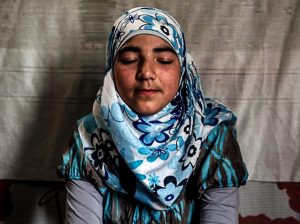 IF I CLOSE MY EYES
IF I CLOSE MY EYES
54 minutes, 2016
Directors and Producers: Francesca MANNOCCHI and Alessio ROMENZI (Italy)
Lebanon, with its 4 million inhabitants, has received about 1.2 million Syrian refugees – a figure humiliating for Europe, which, with its 500 million inhabitants, is constantly bickering about whether to allow 1 million, and which sees immigration as a threat rather than an opportunity.
“If I Close My Eyes” shows us the lives of Syrian refugees in Lebanon, in particular the children the Lebanese school system cannot accommodate. Nearly 300,000 children – for whom the terrible memories of war will never be obliterated – are excluded from the school system. What will become of them? Will they be forced to work for a few dollars a day, or will we be able to offer them a future? The generation of refugee children is losing one of its fundamental rights: the right to education and study.
Italian journalist Francesca MANNOCCHI works for various Italian and international magazines and television programmes, including L’Espresso, Al Jazeera, MiddleEastEye, RAI 3 and SkyTg24. Her work focuses on migration and conflict zones. In recent years she has worked in Tunisia, Egypt, the Balkans, Iraq, Libya, Turkey and Lebanon. In 2015 she won the Premio Giustolisi, for her investigation into migrant trafficking and prisons in Libya, and in 2016 the prestigious Premiolino award for journalism.
Alessio ROMENZI is an Italian photographer who grew up in a small village in the Apennines. He worked as a technician in climate engineering and as a blacksmith before settling in the Middle East to cover the Arab Spring from its inception, particularly in Egypt and Libya. He later became interested in Syria. His work has been awarded by UNICEF (Photo of the Year) and twice by the World Press Photo and Pictures of the Year International. Alessio’s photos are regularly published in major international magazines and used by international humanitarian organizations.
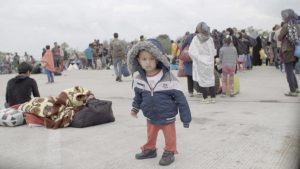 NÉ EN SYRIE
NÉ EN SYRIE
86 minutes, 2016
Director: Hernán ZIN (Argentina)
Production: La Claqueta PC (Spain), Contramedia Films (Spain), Final Cut For Real (Denmark)
Since the start of the civil war in Syria in 2011, about 9 million Syrians have left their country. Half of them children.
Filmed in 4K and with an original music track composed by Gabriel Yared, the documentary “Born in Syria” follows seven of these young children for a year. Through their eyes, we share their lives, from fleeing Syria, through the refugee camps in the Middle East, to their arrival in the promised land, Europe. And then we continue to follow them during their first six months in Europe. This film is a unique testimony of the refugees’ experience.
Hernán ZIN was born in Buenos Aires in 1971. Having studied international relations he has spent the past twenty years travelling the world making documentary films, writing articles and books.
As a director his credits include several documentary films, including: “I Want to be Messi” (2013), “Born in Gaza” (2014) and “10 años con Bebe” (2016).
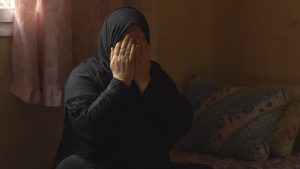 SYRIE, LE CRI ÉTOUFFÉ
SYRIE, LE CRI ÉTOUFFÉ
72 minutes, 2017
Director: Manon LOIZEAU (France) – co-written by Annick COJEAN
Production: Magnéto Presse, with the support of France Télévisions (France)
It’s a lamentation. A howl, stifled yet deafening. A silent cry whose spasms tear through prison walls, basements, the antechambers of death. It’s the cry of Syrian women who, for the past six years, have been routinely raped in Bashar al-Assad’s jails. An organized, pre-meditated crime, based on a key taboo in traditional Syrian society, which makes it impossible for the victims to ever speak about it, knowing they risk rejection – even being stoned to death – by their own family. Rape – in Syria a weapon of war, but never discussed. A way of not only destroying the woman and her identity, but also breaking her family, her clan, and any form of resistance.
How did a woman’s body become part of Syria’s war? The question raised in this film letting women, previously walled-up in shame and silence, speak.
From 1994 to 2002 Manon LOIZEAU worked as a journalist in Russia, for the BBC, Le Monde and for Capa. In 1997 she began to make documentaries in Moscow for France 2, Arte, Canal Plus, mainly about Human Rights, forbidden places, and forbidden countries such as Chechnya where she worked for more than ten years. After Russia she made several films in Afghanistan, India and Pakistan.
Recently she has made films trying to show the hope and despair in Iran. Since the beginning she has been motivated by a desire to tell unknown stories, to give an outlet to forbidden voices – in Syria, the Yemen and again in the Chechen Republic.
Related
Permanent link to this article: https://mediterranee-audiovisuelle.com/primed-2017-mediterranean-issues/?lang=en
 CHILD MOTHER
CHILD MOTHER IF I CLOSE MY EYES
IF I CLOSE MY EYES NÉ EN SYRIE
NÉ EN SYRIE SYRIE, LE CRI ÉTOUFFÉ
SYRIE, LE CRI ÉTOUFFÉ




